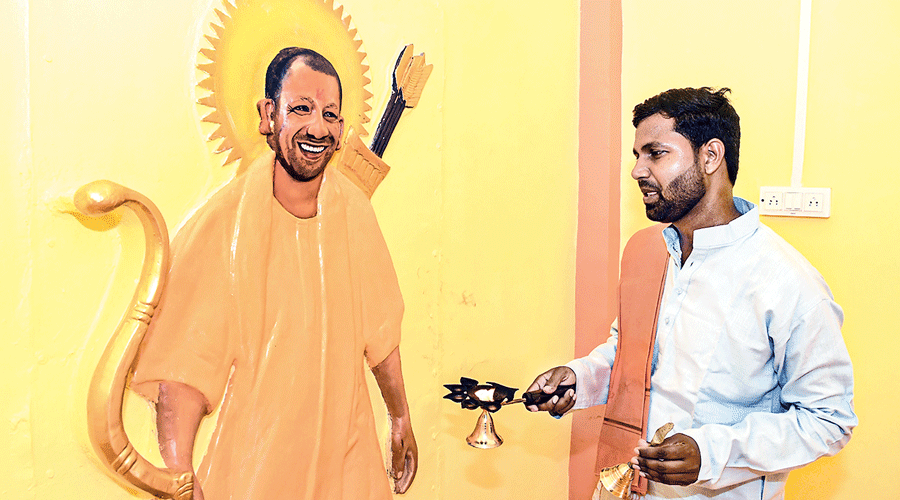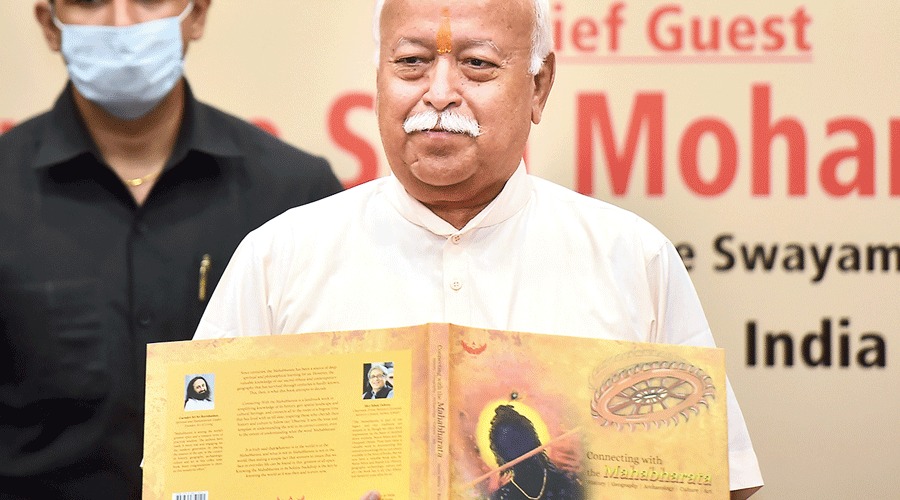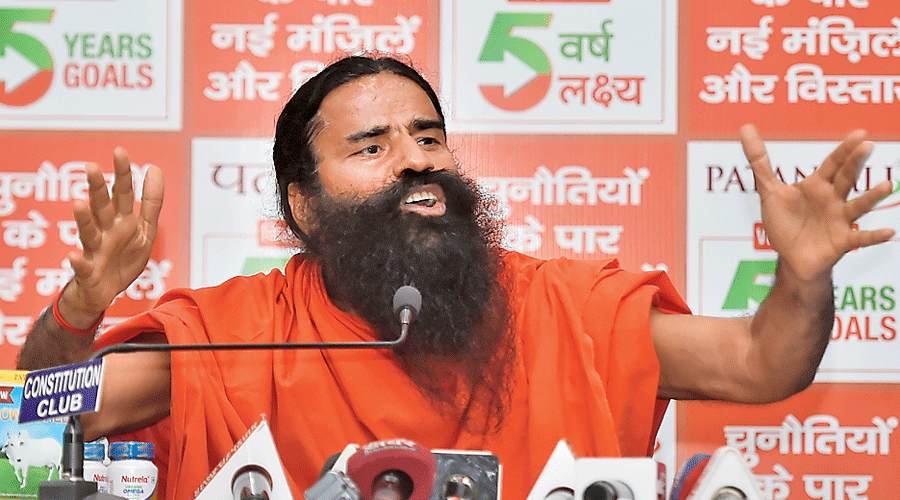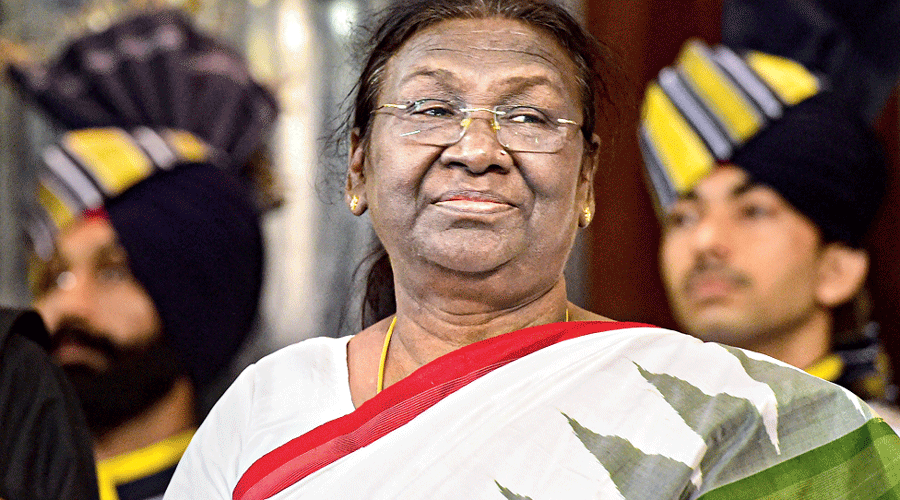The certificates issued to passouts by two school education boards focused on “Vedic education”, including one run by Patanjali Yogpeeth whose trustees include Baba Ramdev, will now be equivalent to those of other boards, including the CBSE, thanks to a government decision.
A source in one of these boards, the Maharshi Sandipani Rashtriya Veda Sanskrit Shiksha Board managed by a central government organisation, said the Vedas and Upanishads would remain “the major component of the syllabus” although modern subjects will be taught.
The website of the Bharatiya Siksha Board (BSB) of Patanjali too stresses “Vedic education, Sanskrit education, shastras and darshanas… Bharatiya parampara”.
Both boards, granted “equivalence” for their certificates by the government-designated body, the Association of Indian Universities (AIU), are now expected to teach modern subjects along with “Vedic education”.
The equivalence means these boards’ Class XII passouts will be eligible for admission to any college, including medical and engineering college.
Some academics expressed doubt whether these boards’ students, taught a blended syllabus, would acquire the necessary competence for higher studies and jobs. A retired JNU professor said these boards would be teaching a “Brahminised” syllabus.
However, a Jamia Millia Islamia professor said these Vedic boards did not seem too different in principle from the madrasa boards, which too teach a blended syllabus.
In a letter to the BSB’s karyakari adhyaksh N.P. Singh, AIU secretary-general Pankaj Mittal said on August 3 that the AIU’s governing council had on August 2 approved equivalence for the board’s exams, courses and certificates.
Mittal’s letter set down conditions to be followed by the board, such as adherence to the Right to Education Act, the NCERT-devised National Curriculum Framework that provides broad guidelines for syllabuses, and the National Council for Teacher Education’s rules on teacher appointments. The AIU will carry out reviews and checks.
A similar letter was sent to the Maharshi Sandipani Board granting equivalence to its Class X certificates (Veda Bhushan) and Class XII certificates (Veda Vibhushan).
The then human resource development ministry had in 2019 approved a Patanjali proposal to set up the BSB.
It also empowered the Centre’s Maharshi Sandipani Rashtriya Ved Vidya Pratisthan — meant to promote knowledge of the Vedas — to set up a Vedic board under which pathshalas would teach the Vedas through oral recitation. Currently, about 600 pathshalas are affiliated to the Pratisthan.
With the grant of equivalence, these boards can now function as full-fledged boards and set up or affiliate schools.
The BSB website says it will impart education in its domain areas and affiliate “modern schools, gurukuls (Sanskrit pathshala) and guru-shishya parampara/ Ved pathshalas”.
“Domain area means a system of education which includes an Indian traditional knowledge like Vedic education, Sanskrit education, shastras and darshanas education, Bharatiya art, Bharatiya parampara and Sanskrit education, etc… which shall be in conformity with National Curriculum Framework (NCF)”.
V.V. Jaddipal, Pratisthan secretary, told The Telegraph the Maharshi Sandipani Board had started functioning but would not give details about the syllabus.
Pratisthan sources said the Vedic pathshalas were still imparting oral teaching without books. One guru teaches about 15 students in a pathshala.
“There’s a plan to blend modern subjects like science, social science and mathematics with the syllabus. But the Vedas and other texts like the Upanishads will remain the major component of the syllabus,” the source said.
The retired JNU professor, who didn’t wish to be quoted, said that like the Manu Smriti, texts like the Vedas and Upanishads presented the Brahminical tradition as the sole Indian knowledge tradition, ignoring the rival Shraman Dharma.
“Equality was never advocated or practised in the Brahminical tradition. The objective of mainstreaming Vedic education is to establish the supremacy of Brahminical thoughts,” he said.
The Jamia professor said the Centre had in 2008 recognised the madrasa boards and mandated them to teach modern subjects along with their religious teachings.
“This (recognition of Vedic boards ) is not new. Rather, this was expected. It will be interesting to see how much of the syllabuses is made up of modern subjects in the Vedic boards,” he said.
The education ministry has written to all the state chief secretaries, the University Grants Commission, technical education regulator AICTE and the vice-chancellors of all universities, informing them about the recognition granted to the Maharshi Sandipani Board as a regular board.
After receiving the ministry’s letter, the AICTE wrote to all its approved colleges to consider passouts of the Maharshi Sandipani Board as eligible for admission.
“You are, therefore requested to consider Veda Bhushan & Veda Vibhushan certifications awarded to candidates by MSRVVP (Maharshi Sandipani Pratisthan) equivalent to 10th Standard & 12th Standard certificates respectively for the academic purposes,” the AICTE circular said.
If recognition were not given, the Vedic boards’ passouts would have subsequently had to sit the board exam conducted by the National Open Schooling Examination, which allows any student to register and take its exam. Its certificates are accepted everywhere.
An email sent to the education ministry seeking its response to the concerns raised by some academics remains unanswered.

Prabhakar Maurya offers prayers to Yogi Adityanath at a temple dedicated to the Uttar Pradesh chief minister at Bharatkund near Ayodhya on Monday. The temple has been built by Maurya who says he keeps reciting hymns in front of the idol every day. Jobless and landless, he says he earns around Rs 1 lakh a month posting bhajans on YouTube. The income funded the temple, he adds. PTI picture

RSS chief Mohan Bhagwat launches a book on the Mahabharata in New Delhi on Monday. PTI picture












